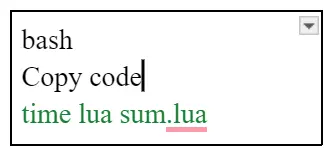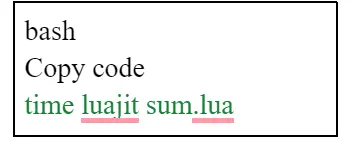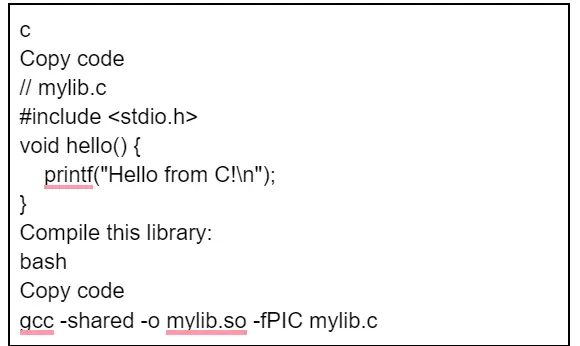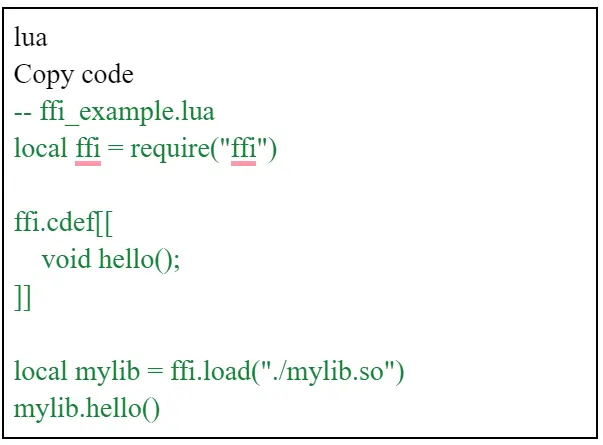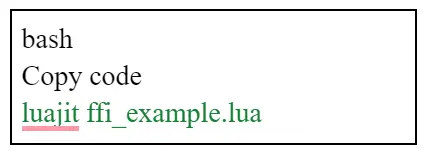Introduction
Update: This article was last updated on 9th March 2026 to reflect the accuracy and up-to-date information on the page.
Lua is a powerful, efficient, lightweight, embeddable scripting language often introduced through Block Coding for Kids. It is used in various applications, from game development to embedded systems. Despite its many advantages, one area where Lua can fall short is performance. This is where LuaJIT comes into play. LuaJIT is a Just-In-Time (JIT) compiler for Lua, designed to significantly boost the execution speed of Lua scripts by compiling them into highly optimized machine code at runtime.
LuaJIT boasts compatibility with a wide range of operating systems, making it a versatile choice for various development environments. Whether you’re working on Windows, macOS, Linux, or BSD systems, it can seamlessly integrate and enhance your Lua scripts with its just-in-time compilation capabilities. This cross-platform support ensures that developers can leverage LuaJIT’s performance benefits regardless of their preferred operating system.
Recommended reading: Develop Game Development and Entrepreneurial Skills by Moonpreneur
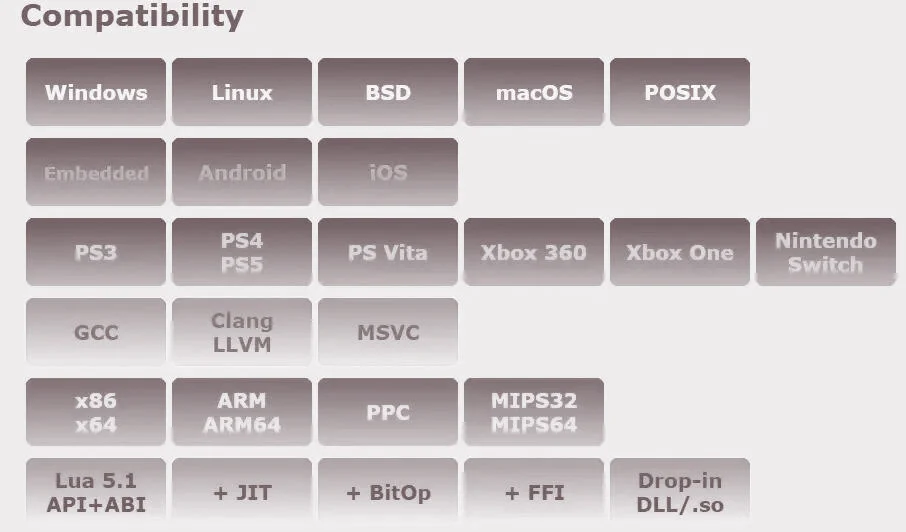
What does LuaJIT do?
LuaJIT is a Just-In-Time compiler designed specifically for the Lua programming language. Traditional interpreters execute code line by line, which can be relatively slow. On the other hand, it compiles Lua code into machine code on the fly, providing a significant performance boost. LuaJIT can improve performance 10 times or more compared to the standard Lua interpreter.
Key Features of LuaJIT
🔖 Trace-Based JIT Compilation: LuaJIT uses trace-based JIT compilation, identifying and compiling frequently executed paths (hot paths) in the code into highly optimized machine code.
🔖 FFI (Foreign Function Interface): It includes an FFI library that allows Lua scripts to call C functions and manipulate C data structures directly, eliminating the overhead of traditional Lua-C bindings.
🔖 Compatibility: This is compatible with Lua 5.1 and offers partial support for Lua 5.2 and 5.3, ensuring that a wide range of Lua codebases can benefit from its performance enhancements.
🔖 Efficient Garbage Collection: LuaJIT includes a high-performance garbage collector that minimizes its impact on runtime performance, crucial for long-running applications.
Why Use LuaJIT?
1. Performance Boost
LuaJIT can significantly accelerate Lua scripts, often delivering performance improvements of up to 10 times or more. This is crucial for performance-critical applications like games, real-time simulations, and high-frequency trading systems.
2. Easy Integration
Integrating it into existing Lua projects is straightforward. LuaJIT is a drop-in replacement for the standard Lua interpreter, allowing you to run existing Lua scripts under LuaJIT with minimal changes.
3. Extended Functionality
The FFI provided by LuaJIT allows Lua scripts to interact directly with C libraries and functions, opening up new possibilities for extending Lua with native code for even greater performance gains.
Recommended reading: Mooncamp – Summer Program For Beginners and Intermediate/Advanved Kids
Getting Started with LuaJIT
Installation
Installing LuaJIT is simple. You can download precompiled binaries or build from source. Here’s how to install LuaJIT on a Unix-like system:
Lua Fact:
What makes Lua unique? Lua is a “multi-paradigm” language with versatile features. While it lacks explicit inheritance support, it can implement inheritance using metatables, adapting to various problem types.
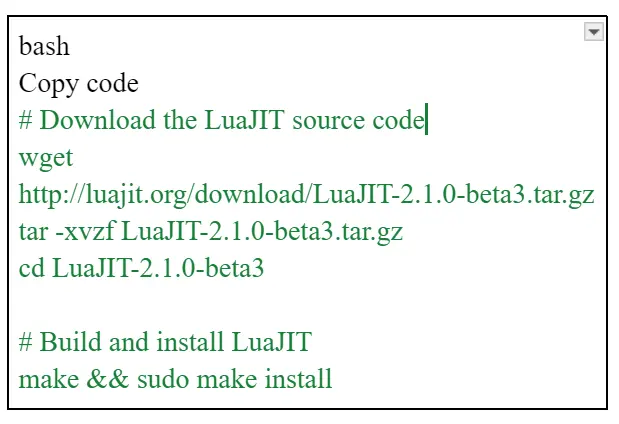
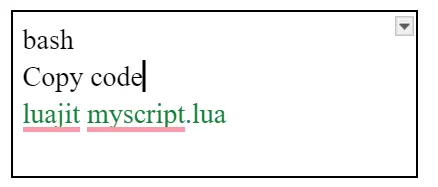
Running Lua Scripts
To run a Lua script with LuaJIT, use the luajit command followed by your script’s filename:
Recommended reading: 5 Reasons Why Your Child Should Learn Lua Language
Example: Performance Comparison
Let’s compare the performance of a simple Lua script running under the standard Lua interpreter and LuaJIT. Consider the following script that calculates the sum of the first 1,000,000 integers:
Lua Fact:
Lua was created in 1993 by a team of Brazilian computer scientists. In 1993, Lua was created by a team of Brazilian computer scientists at the Pontifical Catholic University of Rio de Janeiro. The team aimed to develop a language that was lightweight, efficient, and easily embeddable into other applications
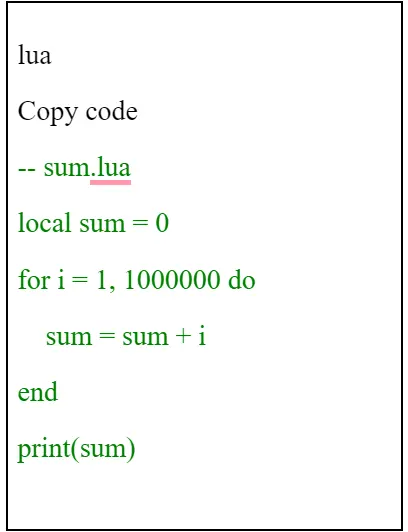
Performance Results
You should notice a significant difference in execution times between the two runs. It compiles and optimizes the loop, resulting in much faster execution.
Using LuaJIT’s FFI
One of LuaJIT’s standout features is its Foreign Function Interface (FFI), which allows Lua scripts to call C functions directly. Here’s a simple example demonstrating how to use FFI to call a C function from Lua.
First, create a C library:
Now, use LuaJIT’s FFI to call this function:
Run the script with LuaJIT:
Conclusion
LuaJIT is a powerful tool that brings the performance of Lua scripts to a whole new level, making it especially valuable for learners exploring Lua coding classes for kids. With its trace-based JIT compilation, efficient garbage collection, and the ability to interface directly with C libraries through FFI, LuaJIT is an excellent choice for developers looking to optimize their Lua applications. Whether you’re developing games, high-performance network applications, or computational tasks, LuaJIT can provide the speed and efficiency you need.
Give LuaJIT a try and experience the performance boost firsthand. Your Lua scripts will run faster, and your applications will perform better, thanks to the power of just-in-time compilation.
Moonpreneur is on a mission to disrupt traditional education and future-proof the next generation with holistic learning solutions. Its Innovator Program is building tomorrow’s workforce by training students in AI/ML, Robotics, Coding, IoT, and Apps, enabling entrepreneurship through experiential learning.





